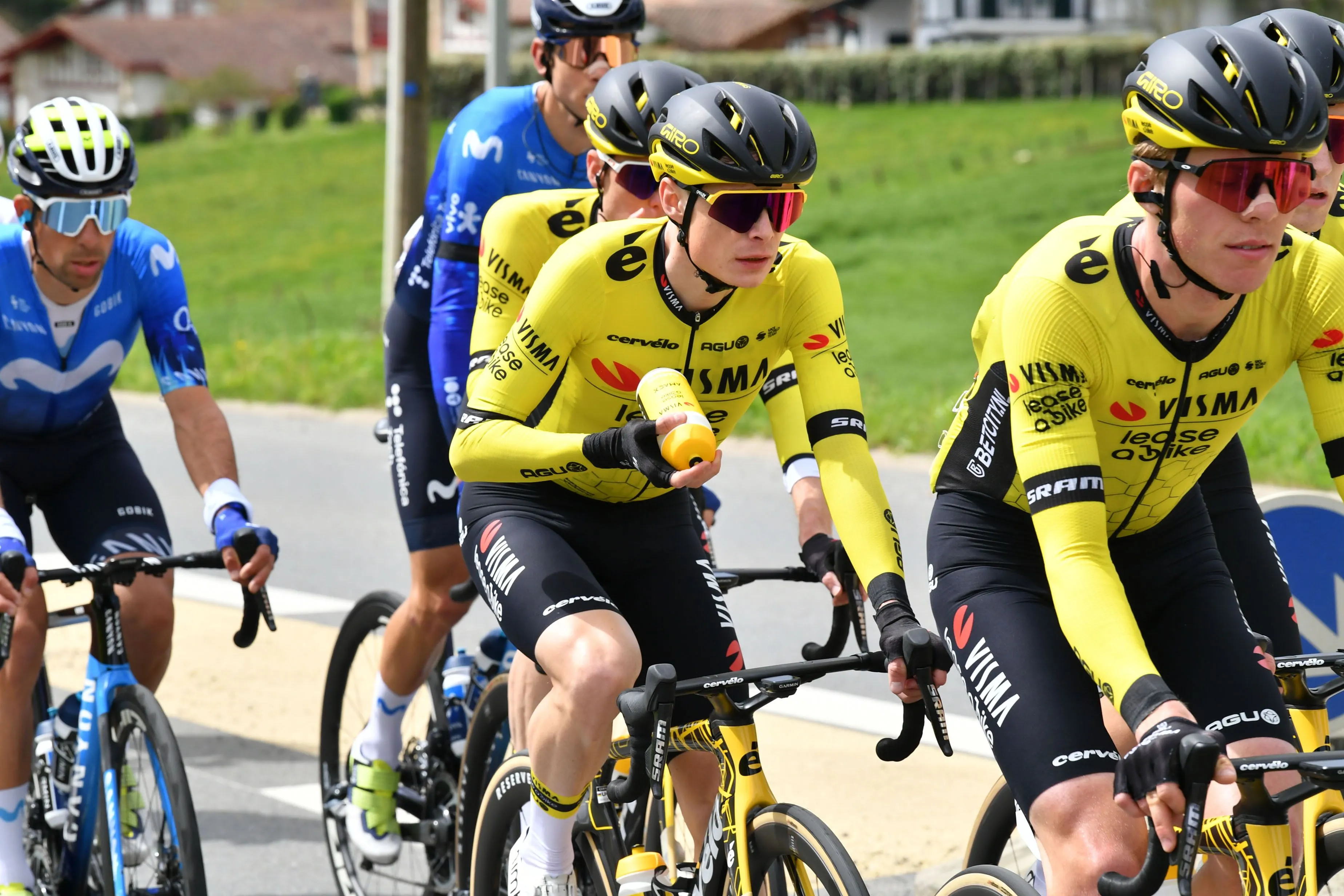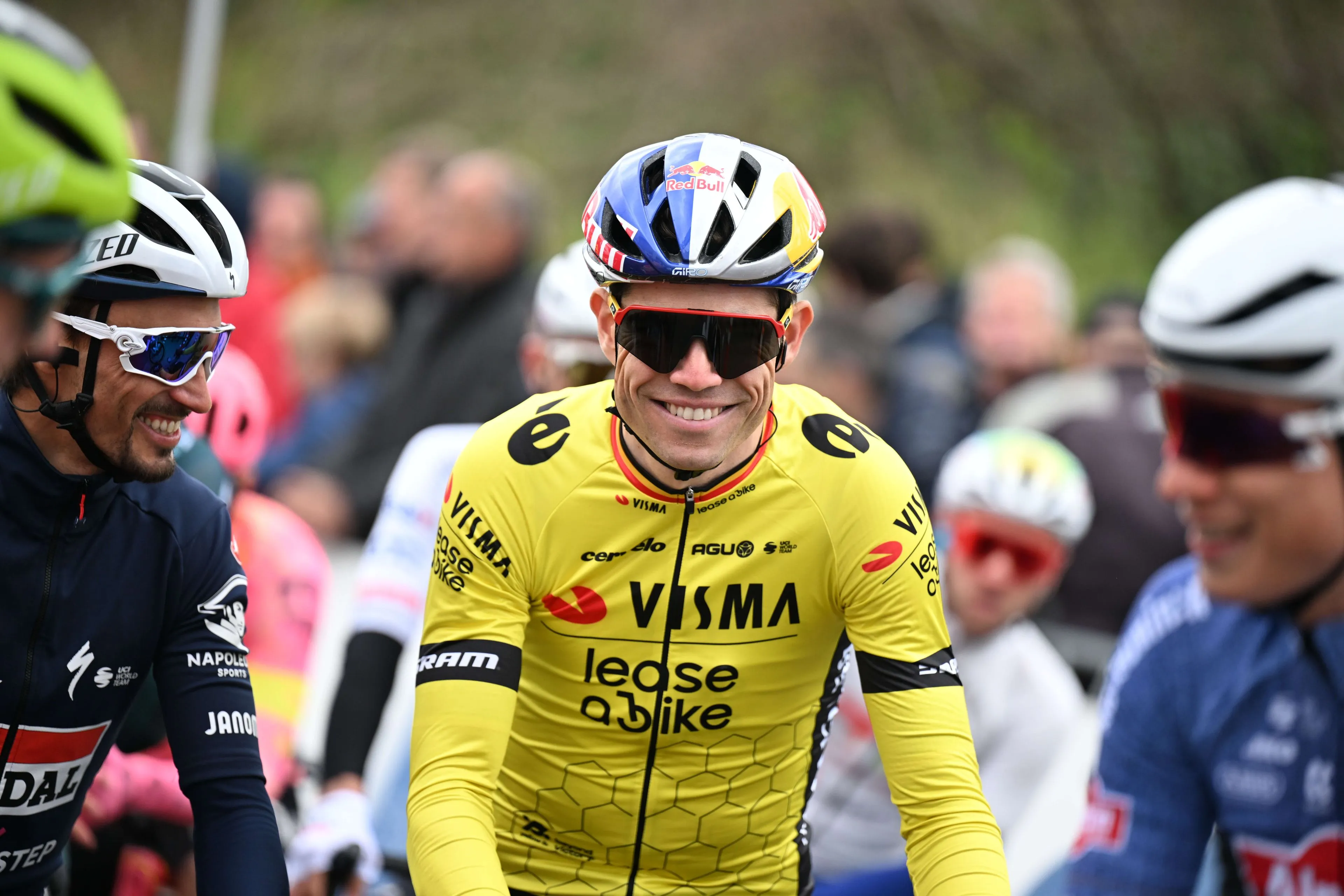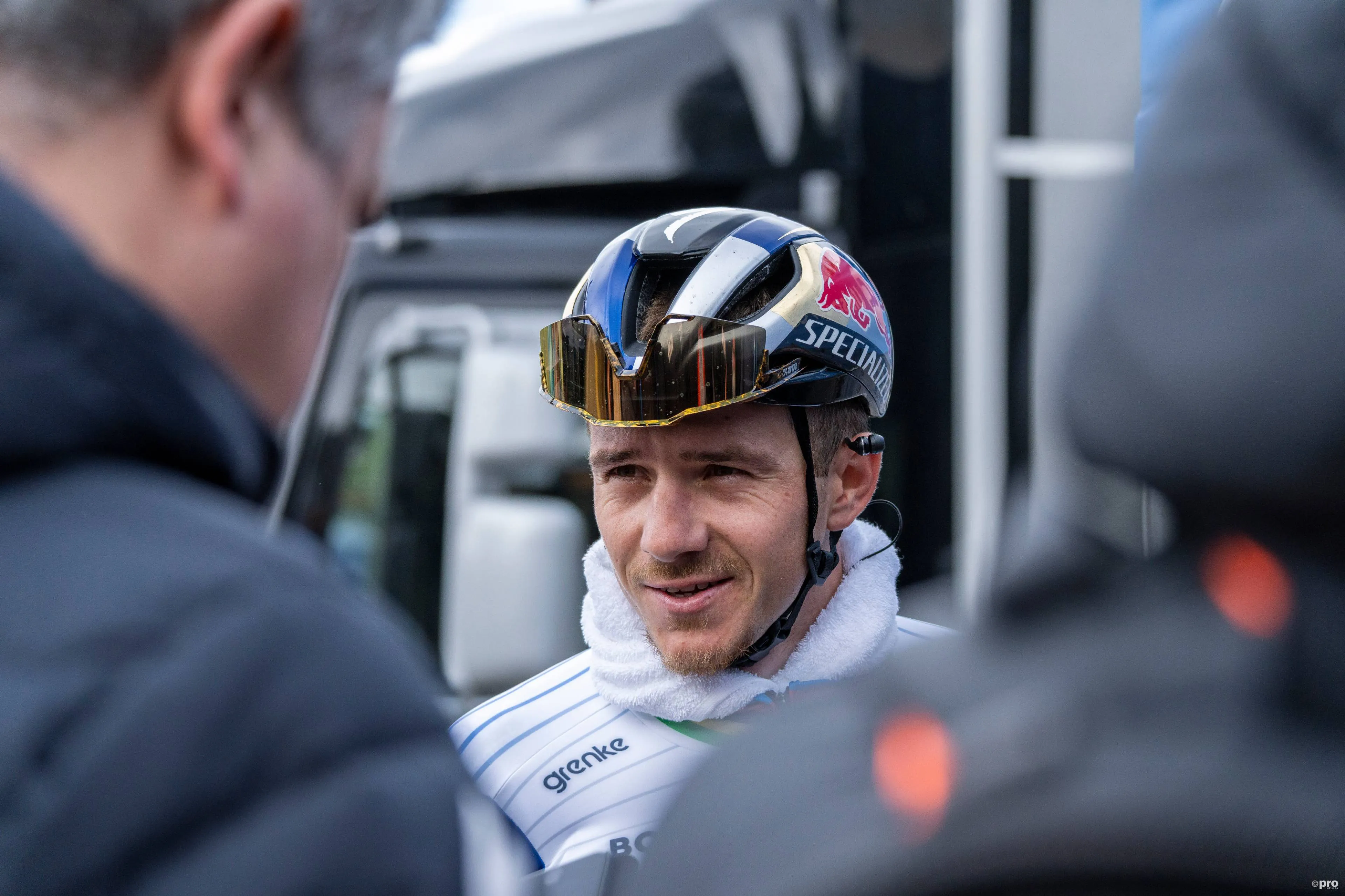“Everyone was looking forward to the big showdown at the Tour de France between Vingegaard, Pogacar, Roglic & Evenepoel" - Richard Plugge claims 'crashes ruin the sport'
CyclingSaturday, 13 April 2024 at 15:00

Excitement had been building for a long time for this summer's Tour de France with Grand Tour cycling's 'Big 4' set to battle it out for the Maillot Jaune in a mouthwatering prospect for fans. Sadly, one crash at the Itzulia Basque Country seems to have put that idea out the window.
Three of the 'Big 4' were caught up in the crash. Remco Evenepoel having multiple fractures and Primoz Roglic fracture fracture-free but covered in scrapes and bruises, but it was Team Visma | Lease a Bike's two-time Tour de France winner Jonas Vingegaard who was worst affected and remains in hospital at the time of writing, nearly two weeks on from the incident.
Read also
“We have to see how they recover as people and only then we can think about when they return to cycling. At the moment it’s way too early, we need to let them rest and recover,” Visma boss Richard Plugge told Cycling News when asked for an update on the Dane's condition.
Plugge, an outspoken advocate for more rider safety in the peloton, is angry and frustrated that crashes continue to 'ruin the sport' as he puts it. “Crashes ruin our sport,” he says bluntly. “Everyone was looking forward to the big showdown at the Tour de France between Jonas Vingegaard, Tadej Pogacar, Primoz Roglic and Remco Evenepoel. Now we might not have that. It’ll be incredibly sad for the sport if any of them are unable to race the Tour de France. We have to do something about it. It's very difficult to see your riders lying on the ground and know that young people, their families and friends will suffer from it all too. It's not only Jonas or Wout that hurts me, it’s terrible seeing any rider crash hard."
Read also
Plugge's SafeR campaign's implementation into the peloton has been delayed due to UCI bureaucracy, much to the frustration of the Visma boss. “A lack of action on safety makes me sad and really mad. We have the beginning of the solution in the SafeR project. It’s basically ready to go but for political reasons, it's really dragging on. There's been an urgency about safety for years but how many wake up calls do we need?" he questions angrily. “Why is there a delay? If safety improves, then safety improves, it's good for everybody."
“All the people sit in front of the television or are glued to social media, perhaps they should try to race over wet cobbles – it's like an ice rink, it’s not safe,” he concludes, praising the introduction of a chicane before the Arenberg Forest at the recent Paris-Roubaix. “Everyone has to play their part in improving safety. We all benefit from a safe sport: the rider obviously, but also their teams and sponsors, the race organisers, the UCI, and of course the fans and anyone who loves our sport. We all have to be ready to change the sport, even if we might not like the changes or if it costs us something. We’ll benefit in the long run. We have to put safety first.”
Read also
claps 1visitors 1
Just in
Popular news
Latest comments
- You need to get out moreJezla18-02-2026
- Ego and self regard are at the center of most human folly.TheOlderIGetTheFasterIWas18-02-2026
- You can't win 'em all. These early season races at this level are good because it shows where you are weak and need work.awp18-02-2026
- This is what I wrote 12-02-2026 10:00: "As far as I'm convinced, Remco still has "zero" wins. I invite Remco to stop in Siena to meet his Slovenian master, Pogi the G.O.A.T... but no, it's better to run away and hide. His fans will somehow defend and glorify him. Let me repeat, he still has zero wins in 2026. If someone doesn't have a high enough IQ to understand what I'm talking about, it's because they don't recognize the low ranking F category races. If Remco will beat Del Toro and Adam Yates in the UAE Tour, then I will consider this to be his first win in 2026. Ad acta." PS: Remco still has zero wins. His second and third class races don't count. The first real race comes along and Mustafa Remco fails.Mou-Cro-HR18-02-2026
- This is what I wrote 12-02-2026 10:00: "As far as I'm convinced, Remco still has "zero" wins. I invite Remco to stop in Siena to meet his Slovenian master, Pogi the G.O.A.T... but no, it's better to run away and hide. His fans will somehow defend and glorify him. Let me repeat, he still has zero wins in 2026. If someone doesn't have a high enough IQ to understand what I'm talking about, it's because they don't recognize the low ranking F category races. If Remco will beat Del Toro and Adam Yates in the UAE Tour, then I will consider this to be his first win in 2026. Ad acta." PS: Remco still has zero wins. His second and third class races don't count. The first real race comes along and Mustafa fails.Mou-Cro-HR18-02-2026
- OK, let's stop with the BS. Remco Mustafa didn't have any cramps, 100%. The only truth is, Remco is not the great cyclist that the Belgians and his fans want us to think. Ad acta!!!... Once in the fall of 2025 I said that Remco's chances of following Pogi are equal to my chances, there is no difference. The only difference is that I'm in front of a TV and Mustafa is acting and making excuses live in front of an audience of millions. Ayuso and Remco are the biggest liars in the peleton.Mou-Cro-HR18-02-2026
- I just hope that he just says that he got cramps and that's it, rather than some long-winded excuse which makes him seem even more of a piece of...
 Rafionain-Glas18-02-2026
Rafionain-Glas18-02-2026 - finally, a team that does something smart. I could never understand why Ineos would like Egan train as he did alone. put a motorbike behind him with an earpiece to call out issues above. same with remco crashing into a postal truck.mij18-02-2026
- Wow, that is not a good sign for Remco. Great win for Tiberi!Pedalmasher18-02-2026
- Great champion Remco but his profile is more suitable for Ardennes-like races and tour with no very hard climbs. Not only Tadej and Vingegaard, there are a lot of younger cyclists (del Toro, Ayuso, maybe Seixas, Nordhagen and others) that will soon be big GC boys.
 maria2024202418-02-2026
maria2024202418-02-2026
Loading
"A Formula 1 driver can crash safely today... This can be done in cycling" - 'Angry' Richard Plugge demands race organisers to more to protect riders after crashes of van Aert & Vingegaard #Cycling cyclinguptodate.com/cycling/a-form…
9 Comments







